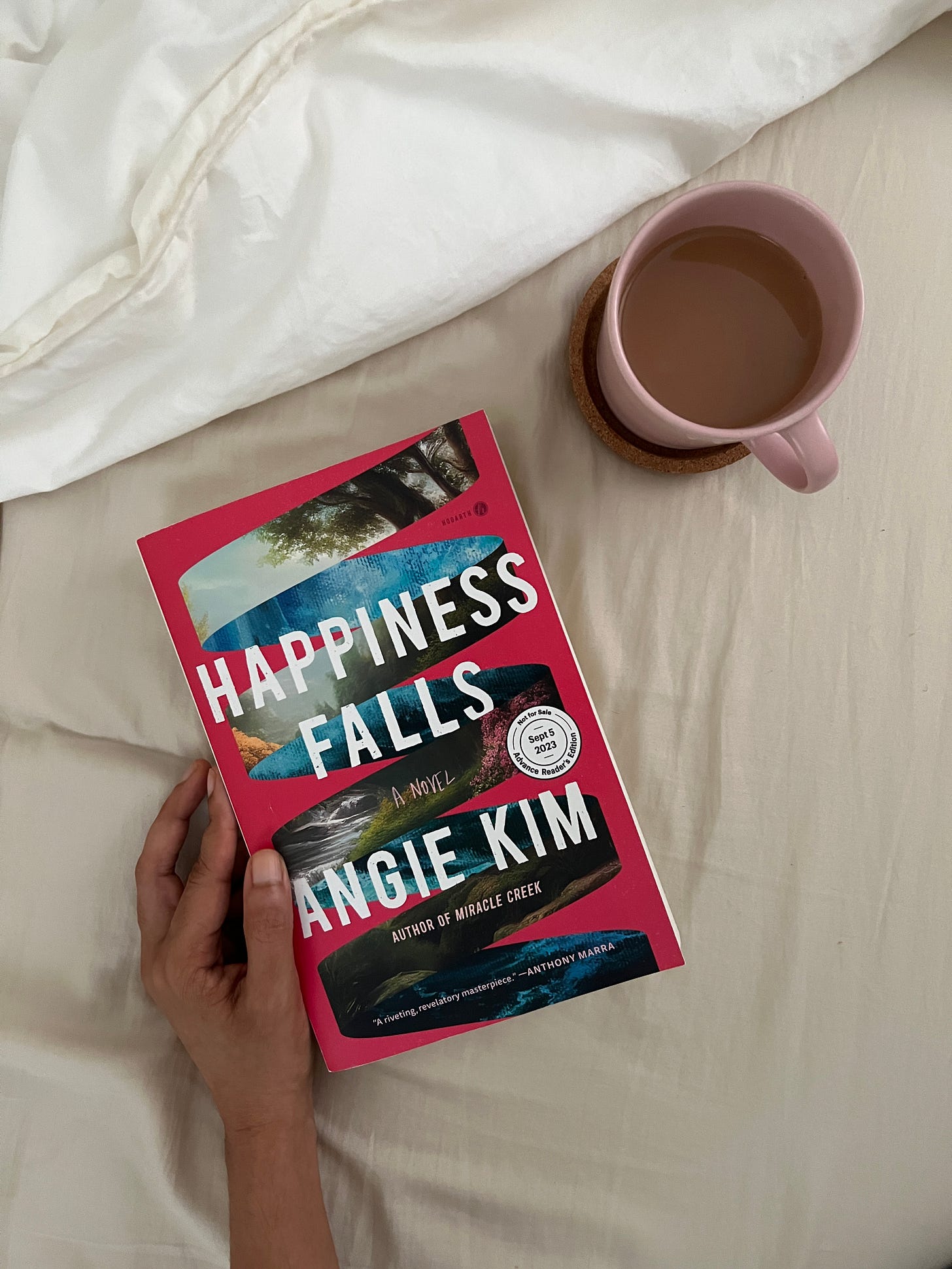Dear Reader,
Do you know how many times you use both your hands every day? Well I do now. I injured my finger in a nasty way while cutting avocados for breakfast on a July morning. Long story short—lots of blood, pain, a rushed Uber ride to the hospital and sutures.
The incident made me realize how much we take our body for granted. I had never noticed how we automatically assist the other hand while picking something up. The joy of cutting nails, tying hair with no strain, lifting mugs and plates single handedly, taking a shower without worry, wearing a T-shirt in less than a minute, buttoning jeans, washing rice (oh my god, do you know how long washing rice takes with one hand?). Lovely!
The sutures are removed now; the finger looks ugly (doc says it’ll be good as new in two months. I think much sooner). But I can finally type on a laptop with ease again (typing on the phone was alright because you (eh …I) don’t use many fingers on the phone). The out-of-order hand is now in good use. It is healing. I’ve been randomly clenching my fist and cracking knuckles. It’ll take me some more time to bend fingers backward. But so far, it feels so good! Is this happiness?
Read
I’ve been doing no reading at all, which makes me think of what do I write in these letters to you if there are fewer books to talk about? Perhaps I need to think about a rebranding.
This month I was forcing myself to get out a reading slump. A bandaged hand and a slump make you very cranky. Like every other story with a happy ending, a good book swooped me off my slump. *drum roll* An advanced reading copy of Happiness Falls by Angie Kim from Random House.
Here's what differentiates a good book and a mediocre one. There’ll always be something that keeps you engaged in a good book. It could be anything—the plot, a character, a twist, the language, or simply the way the prose feels. Happiness Falls was exactly that. Why else would I be completely mesmerized by a book where nothing much happens for 40ish pages? That’s some real, wonderful talented writing right there. The story unfolds unreliably, slowly, soft-dramatically, teasing you to keep up with the details. Stop reading this letter—you don’t need to know anything more—and preorder a copy or prebook it at your library.
In page 1 of Happiness Falls, the narrator reveals her father is missing. The other family members had assumed he was back home from his daily walk with 14-year-old son Eugene. But he wasn’t.
Now here’s the problem. An adult missing is never just a straightforward mystery. The mother is hesitant about calling the police. Eugene, who was with the father before he went missing, is autistic with a rare genetic disorder called Angelman syndrome and cannot communicate with the family members about his father’s whereabouts. There’s unreliability in the circumstances, memories and even in the police officers who are in charge of the missing report. There are mysterious notebooks (and locked computer folders) with observations about the members of the family—as if they were the subject of a scientific study—and a cryptic voicemail that deepen the mystery. Who was the missing Adam Parsons, beyond a father and husband, and what were his secrets?
Small reveals keep the story moving forward. I loved piecing together incidents through different perspectives. For example, there’s a scene where a young Mia is angry at Eugene for destroying her birthday cake. She derives pleasure from a simple harmless act as a retort. But on revisiting the scene later in the novel, our perception of what actually happened changes. It makes us shift sympathies, maybe even wonder how could we possibly view an incident through different viewpoints.
The flashbacks in the plot show us the fine cracks the form in the family over time. The mother, the primary caregiver of the family, goes through phases of hopefulness and crushed hopes. The family dynamics changes when the father who once had a travel-heavy job becomes the primary caregiver and the mother goes back to work in the field of linguistics. Kim undeniably gives Eugene his personhood and agency without relegating him to the margins. Through Eugene, the novel shows us what a family provides to an autistic child and what the child might actually be expecting from the family members. This gap in communication adds layers to the mystery. Similarly, Mia and her twin John often talk about ‘what should or should not be done’ to make things less stressful for their mother, as they investigate the mystery on their own terms.
I absolutely loved twenty-year-old Mia as the choice of the narrator. She is cynical, emotionally reserved, curious minded, and daddy’s daughter. She has her own problems—boyfriend, choice of college degree and discord with mother. She is trapped at home because her college closed due to the Covid lockdown. But everything takes a backseat when this tragedy hits the family. The novel constantly makes us question which side to support in times of a crisis. Humans, after all, are deeply flawed and harbour secrets. But where do the boundaries lie when you live, laugh and exist as a family?
Happiness Falls made me think about happiness, true to the title. Can happiness be measured? Is truth essential to happiness? Is happiness relative? How much of our happiness depends on the previous experience we have lived through? How can one employ logic in the pursuit for happiness? Can another person’s unhappiness be your happiness?
Ultimately it is the story of a Korean American family whose evening is unexpectedly interrupted because the father is missing. The family members—mother and twins—are plagued by a thousand possibilities, but also unsure about how to face different outcomes. Kim tastefully brings together dysfunctional family dynamics, sibling rivalry, sibling love, strained marriage, care for an austistic child, US legal system, domestic priorities, legal drama, cognitive science, linguistics, technological innovations, quantification of happiness and the pandemic into one slow burning mystery.
If you have a thing for great character arcs, and unreliable narration, and you would love to be the reader racing with the fictional characters to solve a mystery, this one’s for you. Undoubtedly an amazing book of 2023.
PS: The title isn’t released until Aug/Sept 2023.
Watch
Hooked to Malayalam movies? Here’s a list of new Malayalam movies to stream in 2023, categorized according to genre—dark, ghost stories, feel-good stories, thrillers etc. Happy TV time!
Amazing Links
“Even when people ‘get real’ on social media - posting a photo of the disastrous pile of dishes in their sink, a whispered confessional style video for ‘close friends’ on Stories… There is always a tidy caption and a lessons learned. There is usually a filter and there is always the awareness of an audience. There simply cannot be the real, earned intimacy of one-on-one friendship. When you are posting with a wide net, the same post for your family member, your best friend, your coworker, your college roommate, and the high school acquaintance you haven’t spoken to in fifteen years - you aren’t forming a real relationship. Who are you talking to?”—Why I deleted my social media
Queer literature for children is changing minds in India (Himal mag)
What smartphone photography is doing to our memories (Vox)
I got addicted to eye candy
Full time children as a career path (Business Insider)
That’s all folks. Word of advice—Be very very careful when you use a knife and/or avocados. Did something make you happy recently? Write to me,
Until next time,
Resh x







Hope you're feeling better! V. excited about this book.
Ahhh that’s scary, hope you heal up alright 🫶💗